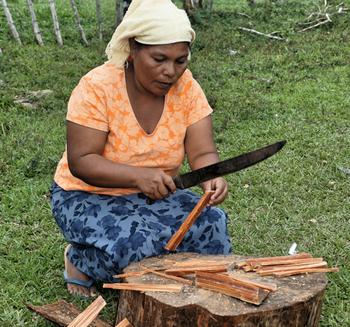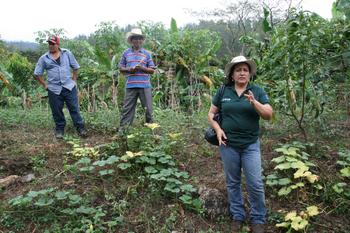Context
Over half of Honduras is covered by forest, but these stocks are in steady decline. Non-sustainable agricultural and livestock farming practices, excessive fuelwood extraction, illegal felling and forest fires are driving an estimated two per cent loss of forest cover annually. At the same time, Honduras is one of the countries hardest hit by climate change anywhere in the world. The intensity and variability of rainfall, flooding, hurricanes and droughts have increased markedly. The country’s generally poor soils are at serious risk of erosion due to inappropriate management, making them even more vulnerable to extreme weather events.
The political framework for promoting sustainable resource usage and the pertinent strategies – for example the national forestry law and its corresponding programme (PRONAFOR, 2010 – 2030), the national climate change strategy, other standards and regulations – are so far only being implemented to a limited extent.
At the decentralised level, a number of local initiatives have emerged that target sustainable forest and resource use; for example, through community-based forest management or the management of smaller water catchment areas. But given the government’s weak support for local actors – both in financial terms and with regard to consulting resources and legal certainty – sustainable management of these ecosystems is yet to be established.
Objective
By engaging in community-based forest management and climate change adaptation measures, rural communities and local actors improve their social and economic situation as well as the environmental conditions.

